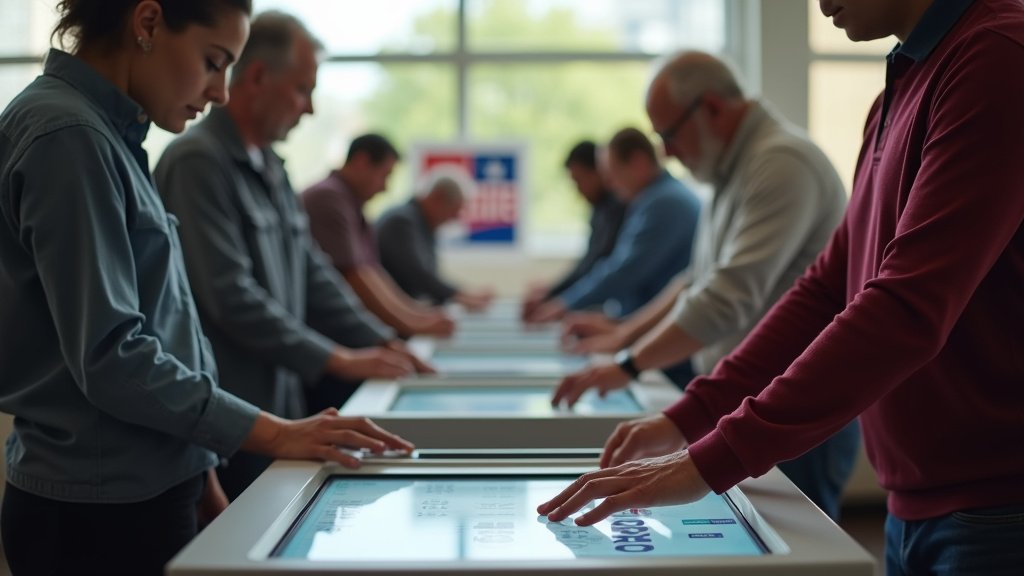AUSTIN, TX – Early voting commenced across the state of Texas today, Monday, October 20, 2025, offering millions of registered voters a crucial window to cast their ballots ahead of the November 4th Election Day. Texans are set to decide on 17 statewide constitutional amendments and numerous local offices, making this election cycle a significant one for the state’s future. This period of early voting, which runs through Friday, October 31, presents an opportunity for citizens to weigh in on issues ranging from property tax reform to the representation in Congress. This news is a top story across the state.
Key Constitutional Amendments Shape the Ballot
Central to this election are the 17 proposed amendments to the Texas Constitution, which require a simple majority vote to be enacted. A major focus for many homeowners is property tax relief, with Proposition 13 aiming to significantly increase the homestead exemption for school district property taxes. This measure, if approved, would raise the exemption from $100,000 to $140,000, potentially leading to substantial savings for millions of Texans. The increased exemption would apply retroactively to the 2025 tax year, meaning tax bills for that year would reflect the lower taxable value.
Several other propositions also address property taxes. Proposition 11 seeks to boost the school property tax exemption for seniors and individuals with disabilities from $10,000 to $60,000. Proposition 9, if passed, would authorize the legislature to exempt a portion of the market value of tangible personal property used for income production, offering tax relief to businesses.
Beyond property taxes, the ballot includes measures on water infrastructure funding (Proposition 4), bail reform allowing judges to deny bail in certain serious felony cases (Proposition 3), and extending property tax exemptions to surviving spouses of veterans (Proposition 7). Each amendment, if passed, becomes a permanent part of the state’s constitution, requiring future legislative supermajorities and voter approval for any changes.
A Competitive Race for the 18th Congressional District
In addition to the statewide propositions, Texas voters will also participate in special elections, most notably for the U.S. House of Representatives in Texas’s 18th Congressional District. This seat became vacant following the death of Representative Sylvester Turner. The race has attracted a large field of over 16 candidates, leading to predictions of a runoff election.
Among the leading contenders are Democrats Amanda Edwards, Jolanda Jones, and Christian Menefee, all vying for the heavily Democratic district. On the Republican side, Carmen Montiel and Carter Page are among the notable candidates. The outcome of this special election could have implications for the narrow majority held by Republicans in the House of Representatives. This particular race is a trending topic in Texas political news.
Navigating Voter Registration Challenges
Concerns have been raised regarding potential disruptions to the voting process due to issues with the state’s updated voter registration system, TEAM (Texas Election Administration Management). County election officials have reported persistent technical problems since the system’s overhaul in July, including data errors, incorrect precinct assignments, and difficulties saving registration information.
These issues contributed to a backlog of tens of thousands of voter registration applications, although many have since been cleared. Election officials had expressed worries that these problems could impact preparations for the upcoming elections. For voters whose registration status cannot be confirmed at the polls, the option to cast a provisional ballot remains available. To ensure a provisional ballot is counted, voters must visit their county’s voter registrar’s office within six calendar days after the election to present acceptable identification or complete a Reasonable Impediment Declaration.
Early Voting: Convenience and Requirements
Early voting provides a convenient alternative to casting a ballot on Election Day, allowing Texans to vote at any polling location within their county of registration. To vote in person, whether during early voting or on Election Day, voters are required to present one of seven acceptable forms of photo identification. These include a Texas Driver License, Texas Election Identification Certificate, U.S. Military ID, or U.S. Passport, among others. Voters who do not possess an acceptable photo ID but cannot reasonably obtain one may complete a Reasonable Impediment Declaration at the polls and present an alternative form of ID.
Voting by mail is also an option for eligible Texans, including those who are 65 or older, have a disability, or will be absent from their county during the early voting period and on Election Day.
As early voting gets underway, Texas election officials are encouraging all registered voters to make a plan to cast their ballot, emphasizing the importance of participation in shaping the state’s future through these critical amendments and local representation. The coming weeks will see a significant portion of the electorate making their voices heard.






